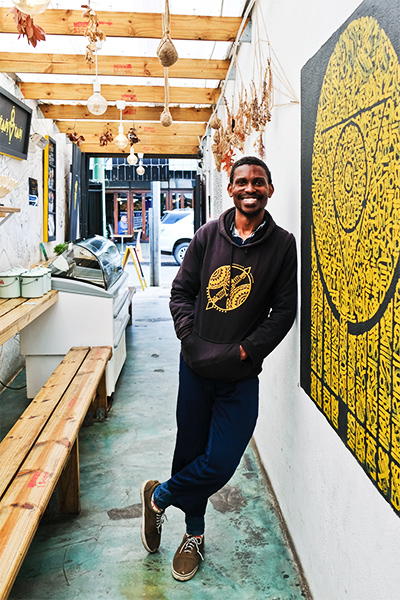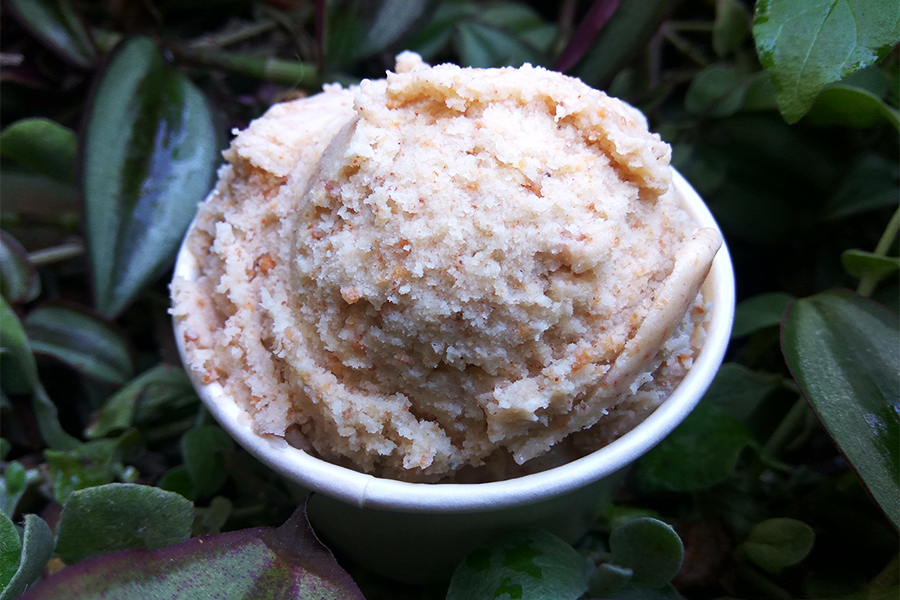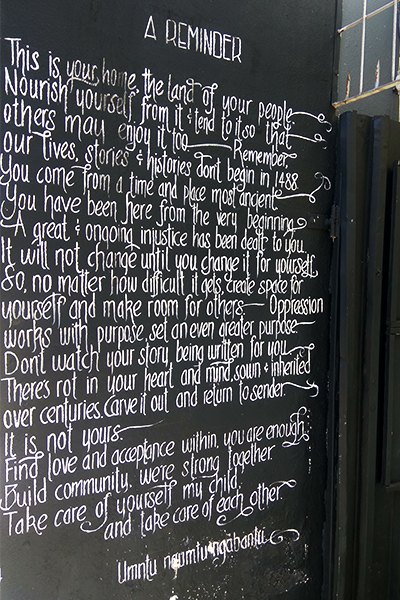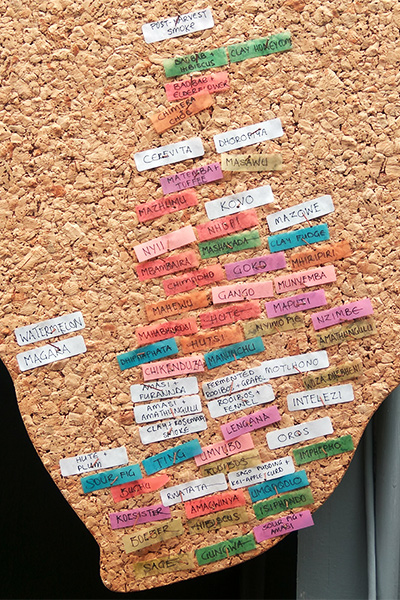Tapi Tapi ice cream: championing the flavours of Africa
Meet the man making cassava ice cream taste ‘yum yum’
Tapiwa Guzha doesn’t sell ice cream.
Of course, the cardboard tub in front of me on the counter is filled with exactly that, a delicious scoop of nhopi; rich with the heady flavours of pumpkin and roasted peanuts.
But for Zimbabwe-born Guzha, the scoops served up at Tapi Tapi – the small ice cream store he opened in Cape Town’s bohemian suburb of Observatory in 2020 – are about far more than a simple frozen snack. Instead, they are about celebrating African identity. They are charged with elevating African heritage and proudly sharing the traditional flavours of the continent.
“Flavours evoke feelings, and part of the conversation I want is for people of Africa to see the beauty and the value of the foods they grew up with,” explains Guzha. “So Tapi Tapi isn’t just about ice cream. You can take this idea and translate it into so many different things and still play with food. Ice cream was just the most accessible place to start.”
Guzha holds a doctorate in molecular biology and first began making ice cream as a hobby during his post-doctoral studies at Stellenbosch University. In 2018 he turned his hobby into a side hustle, delivering small batches of hand-churned ice cream on weekends.

Tapiwa Guzha, founder of Tapi Tapi / Image: Richard Holmes

When molecular biology and culinary heritage combine... / Image: Richard Holmes
“In the beginning, it was very gimmicky,” remembers Guzha. “I was doing alcoholic flavours and fermented ice cream, trying to find my niche in the market. But then one day I was at a Zimbabwean restaurant and saw some snacks from home. I thought, what if I put those into ice cream?”
It was a Damascene moment for Guzha, who realised that something as simple as ice cream, so often seen as a European confection, could be used as a platform for sharing a proudly African identity.
“People just aren’t used to seeing themselves on the menu,” explains Guzha. “We need to start eating local. And by local, I mean working with the endemic flavours from the continent.”
Discomfort is important. If you come here and you don’t even blink at the flavours, I haven’t done something right.
Today, those flavours are what keep a steady flow of curious tourists and savvy locals seeking out his alleyway ice cream store. Guzha creates roughly 100 new flavours each year, drawing on both the inspiration he finds on his travels across the continent and nostalgia for the flavours of home.
Those ‘flavourites’ – as Guzha dubs them – are as inventive as they are surprising. Think candy-stewed cassava or the munyemba of sun-dried black-eyed pea greens. Perhaps a sorbet of okra and rooibos lemonade, or kelewele with caramelised plantain, ginger and fire-roasted peanuts.
Then there’s his utterly unique take on salted caramel: a combination of salt-cured kapenta – a small freshwater fish common in Zimbabwe and Zambia – with toffee. It was, perhaps surprisingly, a huge hit with regulars.

Tapi Tapi's xigugu ice cream, made with ground corn and peanuts

There’s a textural difference to his product too. Each batch is hand-churned with more milk than cream, using cornstarch rather than eggs to stabilise and thicken the custard.
“I want a dense product. If I’m trying to teach you about a new flavour I don’t want to make it too light, or too fatty,” explains Guzha.
That texture certainly lends itself to the richer flavours inherent in many of the Tapi Tapi scoops. Unlike the brighter, lighter flavours common in traditional European ice cream – lemon, mint, pistachio – many Tapi Tapi flavours are, like the African staples they’re built on, redolent with bolder, deeper, earthier notes. The nhopi of roasted pumpkin is a perfect example, and for Guzha it’s a nostalgic trip home to his grandmother’s kitchen. No surprise, then, to discover that the name ‘Tapi Tapi’ is a nod to his homeland; a colloquialism for ‘yum yum’ in the Shona language of Zimbabwe.
While his creations are invariably ‘yum ‘yum’, the flavours still catch many by surprise. And though ice cream may be the perfect comfort food for many, Guzha is hoping for quite the opposite.
“Discomfort is important,” says Guzha, always quick to break into a mischievous smile. “If you come here and you don’t even blink at the flavours, I haven’t done something right. I want people to come with some hesitancy, because then I’m provoking some thought. I want to trigger questions.”

An important reminder for customers that Tapi Tapi is about more than just ice cream

An ever-expanding record of Tapi Tapi's past flavours
If there’s a complaint from most visitors, it isn’t that there’s no vanilla on the menu. It’s that their favourite scoop from last time is no longer available. But Guzha is unmoved.
“How could I even consider repeating flavours when there’s so much to explore still,” wrote Guzha on Facebook earlier this year. “So many kids yet to see themselves on the menu, so many countries and cultures I haven’t even looked at. I can’t repeat a flavour to satiate an individual when it’s so obvious the community needs the diversity more.”
Embracing diversity is part of the long-term plan for Tapi Tapi. While Guzha is actively working to share the Tapi Tapi concept beyond his single Cape Town store, he’s also busy with a host of other concepts that follow the same path of championing the tales, traditions and cultures of the continent.
Guzha dreams of Tapi Tapi expanding into textiles and cookware, along with broadening the experience for those who seek him out on a busy Cape Town street. At the rear of his cosy café, Guzha is working on a new space to serve up an unashamedly African spin on a handful of European deli-style plates.
Expect waffles made of teff flour, an ancient grain originally from the Horn of Africa, or gnocchi made of millet and sorghum flour. Pasta? Guzha plates his with a sauce of peanuts, leafy greens and more salty kapenta. Aside from the food, he’s planning open-mic nights of poetry and music, an urban expression of a traditional gathering at the campfire. It’s certainly a long way from the genetics laboratories that first brought him to South Africa, but it’s not hard to see that Guzha won’t be donning a lab coat again any time soon.